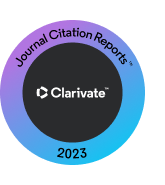PLANNING AND OPTIMIZING THE TREATMENT OF WASHING WATER OF OILY SLUDGE FROM OIL REFINING BY OZONATION
DOI:
https://doi.org/10.5327/Z2176-947820180191Keywords:
wastewater treatment; advanced oxidation; design of experiments.Abstract
The amplest residue from oil refining is the oily sludge, which can be washed to become a fuel; while the acid water is driven to conventional wastewater treatment. Nevertheless, many toxic components are present in this water, highlighting the necessity of more strict treatments. So, this study used and optimized ozonation (maximizing the chemical oxygen demand reduction and minimizing the cost) to treat this acidic water. In this process, the acid water was under long contact with ozone in a reactor. By applying desig of experiments tools and the response surface methodology, models were generated for the reduction of chemical oxygen demand and cost. Normal boundary intersection optimized the models. The software Minitab generated and developed the models. The optimal state for chemical oxygen demand reduction was 51.1% and R$ 151.5.kW -1.h-1 for the cost at the operational conditions of pH, potency percentage and time equal to 7; 61.5%; and 45 minutes, respectively.Downloads
Download data is not yet available.
Downloads
Published
2018-04-02
How to Cite
Oliveira, M. C. A. de, Moreira, J., & Naves, F. L. (2018). PLANNING AND OPTIMIZING THE TREATMENT OF WASHING WATER OF OILY SLUDGE FROM OIL REFINING BY OZONATION. Revista Brasileira De Ciências Ambientais, (47), 24–34. https://doi.org/10.5327/Z2176-947820180191
Issue
Section
Articles
License
Copyright (c) 2018 Revista Brasileira de Ciências Ambientais

This work is licensed under a Creative Commons Attribution 4.0 International License.


























